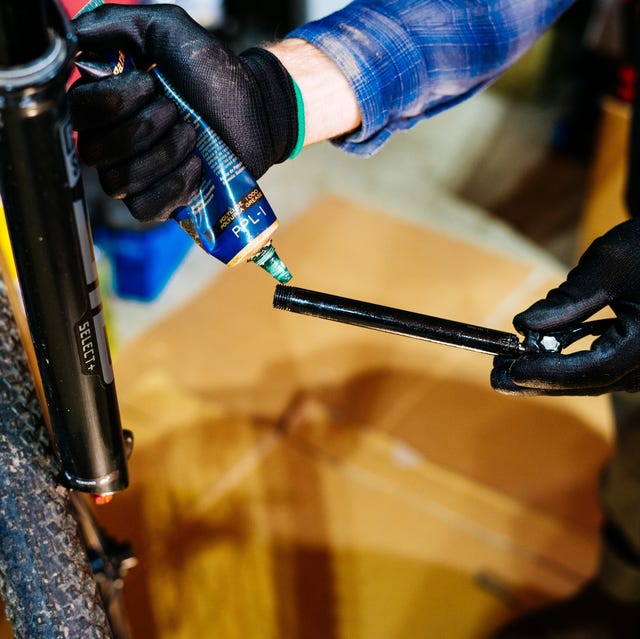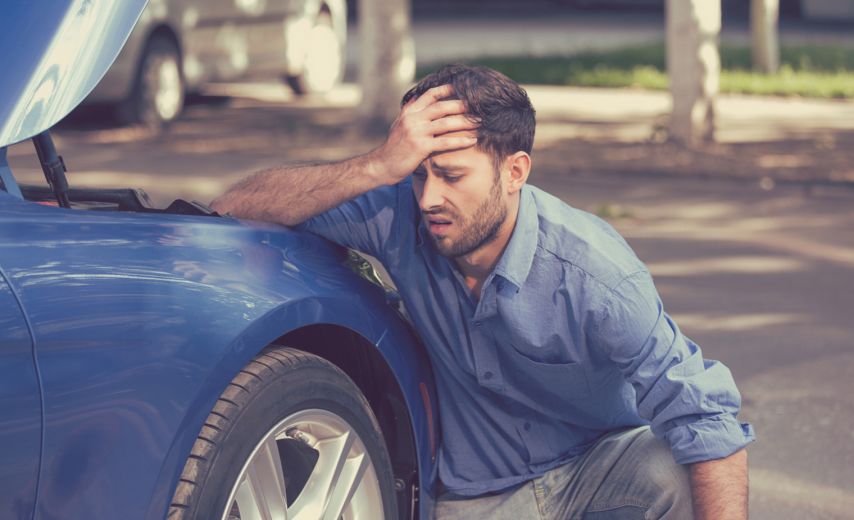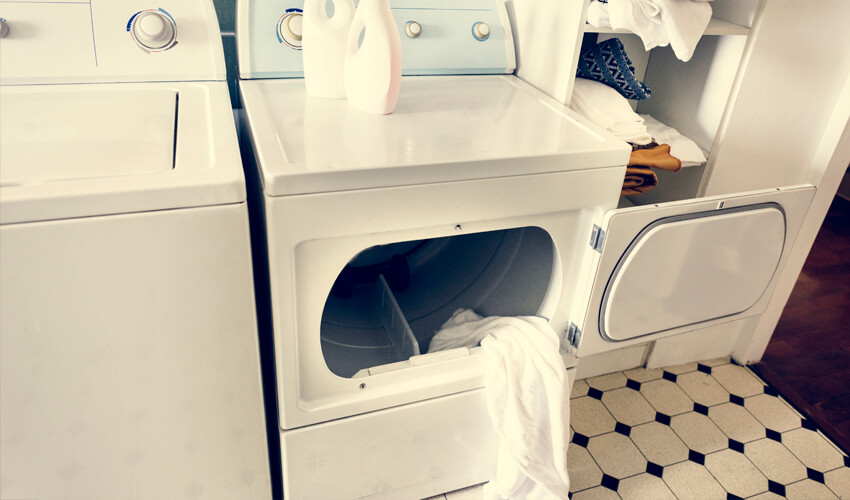If you are hearing a squeaking noise from your front wheel when driving, it could be due to worn-out brake pads or a damaged wheel bearing. Squeaking noises are often a sign of metal rubbing against metal, Squeaking Noise from Front Wheel When Driving, indicating a need for inspection and potential repair.
When driving, it’s important to address any unusual noises coming from your vehicle, as they could indicate a potential safety issue or the need for maintenance. In this case, the front wheel squeaking may require attention to ensure the proper functioning of your braking system and overall vehicle safety. Squeaking Noise from Front Wheel When Driving
Ignoring such noises can lead to more significant and costly repairs down the road. Therefore, it’s essential to promptly have your vehicle inspected by a qualified mechanic to diagnose and resolve the issue.

Squeaking Noise from Front Wheel When Driving
Why Is Your Front Wheel Making A Squeaking Noise?
Are you hearing an annoying squeaking noise coming from your front wheel when you’re driving? It might be a sign of a potential issue that needs attention. In this section, we’ll explore the possible causes behind the front wheel squeaking noise, helping you to identify and address the problem effectively.
Why Is Your Front Wheel Making a Squeaking Noise?
Possible Causes Of Front Wheel Squeaking
A squeaking noise from the front wheel can stem from various underlying issues. Identifying the cause is crucial to ensure your vehicle’s safety and performance.
- Worn brake pads
- Loose wheel bearings
- Contaminated or worn-out rotor
- Malfunctioning suspension components
- Improperly lubricated joints or bushings
Each of these factors can contribute to the squeaking noise, and understanding the potential causes can assist in diagnosing and resolving the problem promptly.
Identifying The Squeaking Noise
When you notice a squeaking noise coming from your front wheel while driving, it is important to identify the source of the issue in order to resolve it effectively.Squeaking Noise from Front Wheel When Driving
Differentiating Squeaking Noise From Other Noises
Sometimes, it can be challenging to differentiate the squeaking noise from other wheel-related sounds. Here are some tips to help you distinguish the squeaking noise:
- Brake Pad Wear: Check if the squeaking noise coincides with applying the brakes, as it could indicate worn-out brake pads.
- Uneven Tire Wear: Evaluate the condition of your tires to see if uneven wear or tire tread separation is causing the noise.Squeaking Noise from Front Wheel When Driving
- Wheel Bearing Issues: Listen for any additional grinding or humming sounds that may indicate wheel bearing problems.
Understanding The Pattern Of The Squeaking Noise
Take note of the pattern of the squeaking noise. Is it consistent in a specific driving condition, such as when turning, accelerating, or braking? Understanding the pattern can provide valuable clues for identifying the root cause of the issue.
Inspecting The Front Wheel And Suspension Components
When a squeaking noise emanates from the front wheel while driving, it is crucial to inspect the wheel and suspension components carefully. Focus on the brake system, wheel bearings, and suspension parts to identify any issues causing the noise. Regular checks and maintenance are essential to ensure a smooth and safe driving experience.Squeaking Noise from Front Wheel When Driving
When encountering a squeaking noise from the front wheel while driving, it’s crucial to perform a thorough inspection of the front wheel and suspension components. Neglecting to address the issue promptly can lead to further damage and compromise the safety of your vehicle. In this section, we will discuss the essential steps to inspecting the front wheel and suspension components, which include examining brake components, checking wheel bearings, and inspecting suspension parts.
Examining Brake Components
To start the inspection, it is crucial to examine the brake components. Faulty brake parts can cause squeaking noises when they rub against the wheel or rotor. Follow these steps to examine the brake components:
- Inspect the brake pads for wear and tear. Look for indications of damage or uneven wear.
- Check the brake rotors for any signs of warping, scoring, or uneven wear. These irregularities can cause the brake pad to rub against the rotor, resulting in squeaking noises.
- Ensure the brake calipers are functioning correctly and are not sticking. A stuck caliper can create friction and cause squeaking sounds.
- Inspect the brake hardware, such as the clips, springs, and shims, to ensure they are in good condition and properly positioned.
Checking Wheel Bearings
Wheel bearings play a vital role in the smooth operation of the front wheel. When they become worn or damaged, they can emit a squeaking noise. Follow these steps to check the wheel bearings:
- Jack up the vehicle and secure it on jack stands to ensure your safety while inspecting the wheel bearings.
- Grasp the wheel at the top and bottom and try to wobble it. If there is excessive play, it may indicate a worn or loose wheel bearing.
- Spin the wheel manually and listen for any grinding or rumbling noises, as these can be signs of a damaged wheel bearing.
- If any issues are found, consider replacing the wheel bearings to eliminate the squeaking noise and maintain your vehicle’s optimal performance.
Inspecting Suspension Parts
The suspension system consists of various components, such as control arms, ball joints, and bushings, that contribute to the stability and smoothness of the front wheel. Any wear or damage to these parts can introduce squeaking noises. Here’s how to inspect the suspension parts:
- Visually inspect the control arms, checking for any signs of cracks, bends, or damage.
- Examine the ball joints for wear, such as excessive play or looseness.
- Inspect the bushings for signs of wear or deterioration, including cracks or distortion.
- If any issues are detected, it is advisable to have a professional mechanic evaluate the suspension system and perform any necessary repairs or replacements.
Remember, inspecting the front wheel and suspension components is crucial when dealing with a squeaking noise while driving. By examining the brake components, checking the wheel bearings, and inspecting the suspension parts, you can identify and address the root cause of the issue, ensuring your vehicle operates smoothly and safely on the road.

Squeaking Noise from Front Wheel When Driving
Common Diy Fixes For Front Wheel Squeaking
Dealing with a squeaking noise coming from your front wheel while driving can be frustrating and concerning. Not only can it be a distraction, but it may also indicate underlying issues with your brake components or wheel bearings. Fortunately, there are common DIY fixes that you can try to address the problem and get rid of that annoying squeak.Squeaking Noise from Front Wheel When Driving
Cleaning And Lubricating Brake Components
One common cause of front wheel squeaking is dirt and debris buildup on the brake components. Over time, this can affect the performance and create friction, resulting in the unpleasant noise. However, you can easily resolve this issue with a thorough cleaning and lubrication. Here’s how you can do it:Squeaking Noise from Front Wheel When Driving
- Start by removing the wheel to access the brake components. Ensure the vehicle is safely secured on jack stands before proceeding.Squeaking Noise from Front Wheel When Driving
- Use a brake cleaner spray to remove any built-up grime, dust, and excess brake pad material from the caliper, rotor, and brake pads. Be sure to follow the instructions on the cleaner’s label.Squeaking Noise from Front Wheel When Driving
- Inspect the brake pad wear. If they are still in good condition and have sufficient thickness, you can proceed with lubricating them.
- Apply a thin layer of high-temperature brake grease to the metal backing of the brake pads, ensuring you avoid contact with the rotor or friction material.Squeaking Noise from Front Wheel When Driving
- Reassemble the brake components and repeat the process for the other front wheel if needed.Squeaking Noise from Front Wheel When Driving
Replacing Worn Brake Pads
In some cases, the squeaking noise may be a result of worn-out brake pads. When the brake pad material becomes too thin, it can lead to metal-to-metal contact, causing the squeak. If cleaning and lubricating the brake components didn’t fix the issue, you may need to replace the brake pads. Here’s what you should do:
- Start by removing the wheel and then the caliper to access the brake pads. Remember to secure the vehicle properly before beginning.Squeaking Noise from Front Wheel When Driving
- Inspect the brake pads for wear. If they are less than the recommended thickness or show signs of uneven wear, it’s time to replace them.Squeaking Noise from Front Wheel When Driving
- Install the new brake pads by following the manufacturer’s instructions. Ensure they are securely positioned and aligned with the rotor.
- Reassemble the caliper and wheel, and repeat the process for the other front wheel if necessary.Squeaking Noise from Front Wheel When Driving
Greasing Wheel Bearings
Another possible cause of front wheel squeaking is insufficient or worn out wheel bearing grease. The wheel bearings help the wheel rotate smoothly, and when they lack proper lubrication, they can produce a squealing or grinding noise. To grease your wheel bearings, follow these steps:
- Remove the wheel, hubcap, and brake components to access the wheel bearings.Squeaking Noise from Front Wheel When Driving
- Clean the wheel bearings using a solvent or cleaner to remove old grease and dirt.
- Apply a generous amount of high-quality wheel bearing grease to the bearings. Make sure it is evenly distributed.
- Reinstall the bearings, hubcap, and brake components, ensuring everything is properly aligned.Squeaking Noise from Front Wheel When Driving
- Repeat the process for the other front wheel if required.Squeaking Noise from Front Wheel When Driving
When To Consult A Mechanic
If you notice a squeaking noise coming from the front wheel while driving, it’s advisable to consult a mechanic promptly. Ignoring this issue could lead to potential safety hazards and further damage to the vehicle. Seeking professional assistance will ensure the problem is addressed and resolved efficiently.
Signs That Require Professional Assistance
When you notice a squeaking noise coming from the front wheel of your vehicle, it’s essential to be aware of the signs that indicate the problem requires professional assistance. While some minor squeaks can be addressed with simple solutions, there are certain indications that should prompt you to consult a mechanic.
Here are some signs to look out for:
- The squeaking noise persists even after trying some troubleshooting methods.
- The squeaking noise becomes more pronounced, louder, or more frequent.
- You experience difficulty in steering or controlling your vehicle.
- You notice abnormal vibrations or shaking while driving.
- The squeaking noise is accompanied by other unusual sounds, such as grinding or clicking.
- There is a significant decrease in braking performance.
When any of these signs are present, it is crucial to consult a mechanic promptly to properly diagnose and address the issue. Ignoring these signs and continuing to drive with a squeaking noise from your front wheel can potentially lead to further damage and compromise your safety on the road.
Keep in mind that a professional mechanic has the knowledge, expertise, and diagnostic tools necessary to accurately identify the underlying cause of the squeaking noise. They can then provide the appropriate repairs or replacements needed to restore your vehicle’s optimal performance.
In conclusion, while minor squeaks can often be resolved through DIY methods, certain signs indicate the need for professional assistance. It is always best to prioritize your safety and have a mechanic inspect and address any issues related to the squeaking noise from your front wheel.
Preventing Front Wheel Squeaking
Regular Maintenance Practices
Maintaining your front wheels in good condition is essential to prevent squeaking noises while driving. Regular maintenance practices can significantly reduce the chances of encountering this irritating problem. Here are some key steps you can take to keep your front wheels functioning smoothly:
Driving Habits that Minimize Squeaking
Your driving habits can also contribute to minimizing front wheel squeaking. Practicing these driving habits can help ensure a comfortable and noise-free journey:
- Smooth Acceleration and Braking: Avoid sudden acceleration or braking, as this can strain the front wheel components and lead to squeaking noises. Gradually control your vehicle’s speed to maintain a steady and smooth ride.
- Appropriate Cornering Technique: Take corners carefully, avoiding excessive speed. Sharp turns can place undue stress on the front wheels, causing them to squeak.
- Avoid Potholes and Rough Roads: Bumpy surfaces and potholes can accelerate wear and tear on your front wheels. Whenever possible, choose to drive on well-maintained roads to reduce the risk of squeaking.
- Proper Tire Inflation: Ensure your front tires are inflated to the recommended pressure levels. Over or under-inflated tires can affect wheel alignment and increase the likelihood of squeaking.
- Regular Wheel Alignment and Balancing: Get your vehicle’s wheels professionally aligned and balanced on a regular basis. Proper alignment and balancing can help distribute the weight evenly and prevent unnecessary friction.
By following these regular maintenance practices and driving habits, you can minimize the occurrence of front wheel squeaking and enjoy a smooth and noise-free driving experience.

Squeaking Noise from Front Wheel When Driving
Frequently Asked Questions On Squeaking Noise From Front Wheel When Driving
Why Is My Front Wheel Making A Squeaking Noise While Driving?
The squeaking noise from the front wheel while driving may be due to worn-out brake pads or a damaged wheel bearing. It’s important to get it checked by a professional to ensure your safety and prevent further damage to your vehicle.Squeaking Noise from Front Wheel When Driving
Can A Loose Lug Nut Cause A Squeaking Noise From The Front Wheel?
Yes, a loose lug nut can cause a squeaking noise from the front wheel. When the lug nut is loose, it can create vibrations that result in a squeaking sound. It’s essential to check and tighten all lug nuts regularly to prevent any potential issues.Squeaking Noise from Front Wheel When Driving
How Do I Fix A Squeaking Noise Coming From My Front Wheel?
To fix a squeaking noise from the front wheel, you should first identify the source of the noise. It may require replacing worn-out brake pads, lubricating the wheel bearing, or repairing any damaged components. Consulting with a professional mechanic will help you determine the best course of action for your specific situation.Squeaking Noise from Front Wheel When Driving
Conclusion
To sum up, don’t ignore a squeaking noise coming from your front wheel while driving. It could be a sign of various issues, including worn-out brakes, suspension problems, or loose bearings. Promptly addressing the root cause of the problem will ensure your safety on the road and prevent further damage to your vehicle.Squeaking Noise from Front Wheel When Driving
Remember to consult a professional mechanic for a thorough inspection and necessary repairs. Drive safe!Squeaking Noise from Front Wheel When Driving

